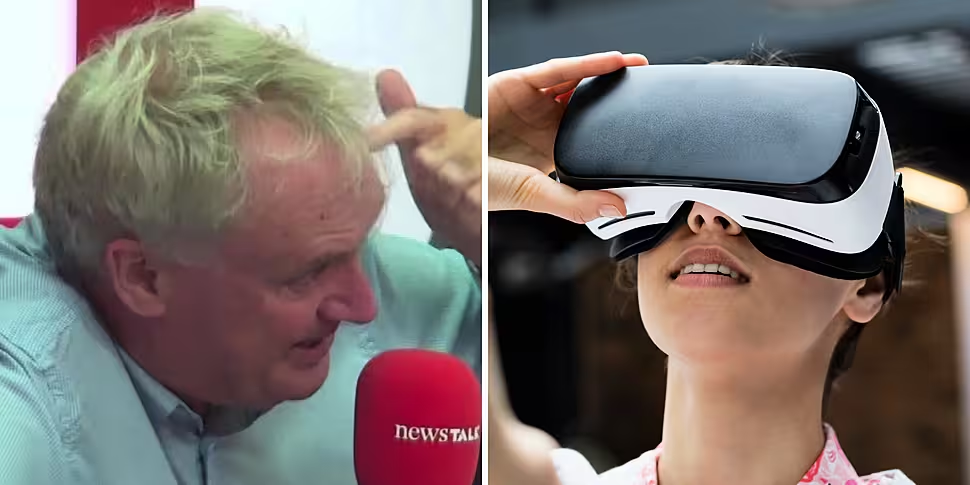Virtual reality and driverless cars may not be the future – because too many people get motion sickness using them.
On The Pat Kenny Show this morning, Trinity Professor Luke O’Neill said recent studies have found that large portions of the population get motion sickness on virtual reality (VR).
Women are twice as likely to get motion sickness in VR than men – with eight-in-ten women feeling unwell using the technology.
“It was always known by the way that motion sickness is more common in women anyway,” said Prof O’Neill.
“In other words, you won’t be selling billion dollars’ worth of these headsets unless you can crack this motion sickness thing.”
He said there are similar problems with driverless cars.
“They've shown as well, if you're in a driverless car, you're at much higher risk of motion sickness,” he said.
“So obviously if that is a feature, they’ve got to find out what is going on and maybe better ways to treat it.”
Motion sickness
Prof O'Neill said science can explain why some people never feel sick driving or in the front seat – but struggle as soon as they sit in the back.
“If you’re driving, you are concentrating and you are anticipating and your brain likes to be prepared for things and that seems to have an effect,” he said.
“In the front again, your might have your eye on the horizon and as we know, if you lock on to the horizon with your eyes, that seems to limit the chance of you being sick.”
Sensory conflict theory
He said reading or using your phone in a car is a sure way towards motion sickness for many people.
“The basis for it, probably, is a disconnect between your eyes and your ears,” he said. “Your ears are sensing balance – you know, your inner ear, your vestibular canal. That will sense your posture and where you are.
“If your eyes are saying you aren’t really moving - if you are in the car, looking at the floor say - yet your ears know you are moving, that disconnect seems to register with the brain and then you begin to feel nauseous.
“So, if you are on your phone or reading that is really bad because your eyes are telling you one thing and your ears are telling you another.”
How to prevent motion sickness
Prof O’Neill said there are a range of tried and trusted measures to tackle motion sickness.
- Dehydration makes it worse – Stay hydrated
- Don’t eat too much - Rich foods are going to make you much sicker
- Avoid caffeine
- Avoid alcohol – Drinking can make it worse because your balance is affected
- Sit in the front
- Keep your eye on the horizon.
- No reading
- No scrolling on your phone
- Medications – Antihistamines are proven to help
- Breathing – Controlled breathing is 50% as effective as meds.
You can listen back here:









